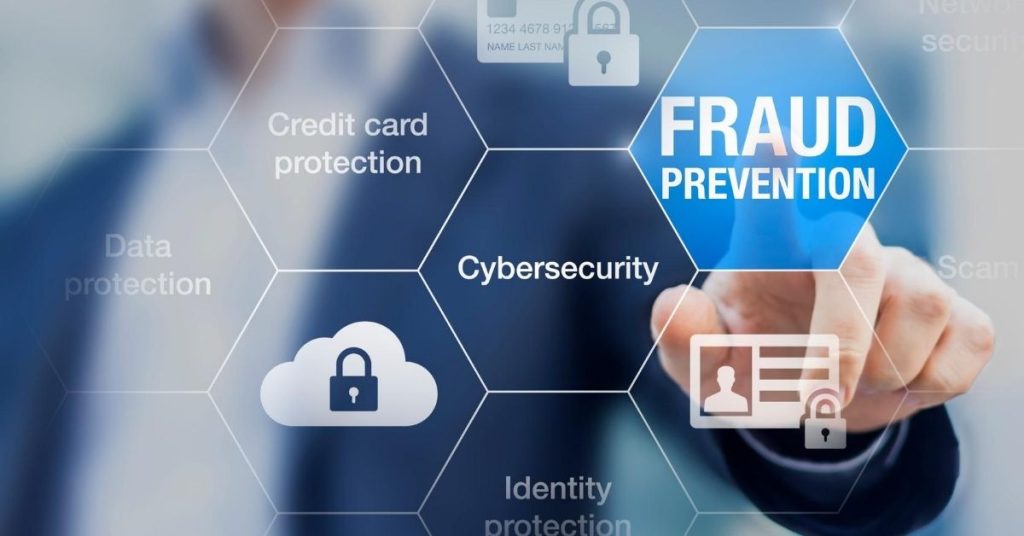In today’s increasingly digital world, safeguarding your financial information from fraud and identity theft is essential. These crimes can have long-lasting impacts on your credit score and personal well-being, so it’s important to stay vigilant. This blog post aims to provide you with actionable tips on how to protect your finances against fraud and identity theft in the USA
Protecting your money isn’t just about having a secure place to save it; it’s also about ensuring it’s safe from digital threats. With the rise of online banking and digital payments, the risks associated with fraud and identity theft have increased. Learning how to defend yourself against these threats is crucial for financial security.
Understanding Financial Fraud and Identity Theft

Financial fraud occurs when someone uses deceit for financial gain, often by using your financial information without your permission. Common methods include phishing scams, credit card fraud, and even stealing mail. Identity theft, on the other hand, involves someone unlawfully obtaining your personal information to impersonate you, commonly for financial benefit.
When your identity is stolen, criminals can open new credit accounts, apply for loans, and make purchases in your name. This can severely damage your credit rating and can take years to rectify. Understanding the common tactics used by fraudsters and identity thieves is the first step in protecting yourself.
Common Techniques Used by Fraudsters
Phishing is one of the most prevalent tactics. Perpetrators send emails or text messages pretending to be reputable companies to induce individuals to reveal personal information. Phishing scams can look incredibly convincing, making it important always to verify the sender before clicking on any links or providing any information.
Skimming is another common technique. Criminals use a small device to capture your credit or debit card information during a legitimate transaction. ATMs and gas station pumps are common targets for skimmers, so regularly monitoring your bank statements for suspicious activity is essential.
Mail theft and dumpster diving involve criminals intercepting your mail or going through your trash to find sensitive information. Shredding documents containing personal details and securing your mailbox can help mitigate these risks. Being aware of these techniques is crucial for prevention.
The Impact on Your Financial Health
Once a fraudster has your financial information, the consequences can be severe. They can drain your bank accounts, max out your credit cards, and take over your utility accounts. Resolving these issues typically involves a lengthy and stressful process of proving that you were a victim of fraud.
Your credit score can take a significant hit, affecting your ability to secure loans, rent properties, and potentially even get a job. Creditors don’t always believe victims are innocent and may hold them accountable for the fraudulent activity until proven otherwise.
Proactive Measures to Safeguard Your Financial Information
Taking proactive steps is the most effective way to safeguard your finances. Simple but effective measures such as regularly monitoring your bank statements, using strong, unique passwords, and enabling two-factor authentication can go a long way in protecting your financial information.
Regularly review your credit reports through annualcreditreport.com, where you can access three free credit reports per year. Checking your credit reports ensures that any unusual activity is spotted quickly, enabling you to act before significant damage is done.
Another good practice is to freeze your credit. This can prevent new creditors from accessing your credit report and opening new accounts in your name. This does not affect your credit score and can be easily reversed when you need to apply for credit.
Strengthening Your Online Defenses
Changing your passwords frequently and using a combination of letters, numbers, and special characters can make your accounts harder to crack. Avoid using easily guessable information like birthdays or simple number sequences. Password managers can help by securely storing your complex passwords.
Be cautious when sharing personal information online. Make sure you only enter your details on secure websites – look for “https://” in the URL and a padlock symbol. Avoid using public Wi-Fi for banking or shopping, as these networks are often less secure.
Protecting Physical Documents
Secure personal documents, such as social security cards, passports, and birth certificates, in a safe place. When you need to dispose of documents containing personal information, such as bank statements or medical bills, use a shredder rather than simply throwing them away.
Be aware of the information you carry in your wallet or purse. Limiting what you carry day-to-day reduces the risk should it get lost or stolen. Avoid keeping your social security card on you, and consider using a protective RFID wallet to safeguard against skimming devices.
